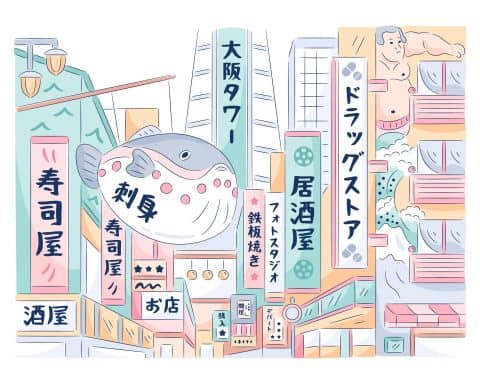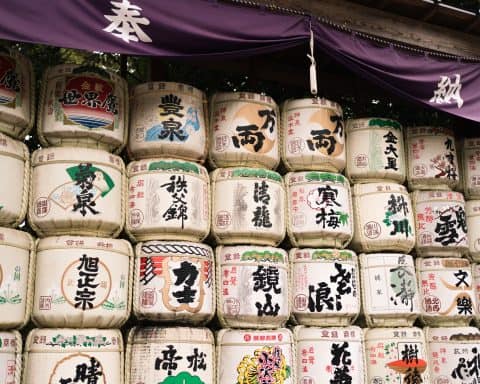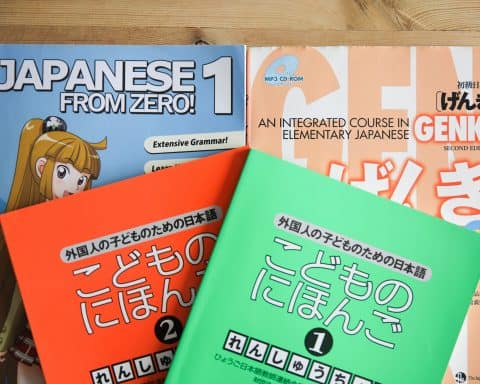As an Amazon Associate, I get commissions for purchases made through links in this post. At no extra cost to you! ^_^
I’ve always dreamed about being able to learn Japanese whilst exerting the least amount of effort possible. Don’t get me wrong, I really enjoy an intense study session, but Japanese is an incredibly heavy language sometimes.
But what if you could learn Japanese while you sleep? That would be the dream! (…get it? Dream?… Well, I think I’m funny, anyway…)
As you’re about to find out, it is possible to learn Japanese while you sleep. It’s important to realize, however, that the outcome is dependent on your overall proficiency of the language as well as the work you do before and after you wake up. It is absolutely not a magical shortcut to becoming fluent.
There are, however, a few ways to learn Japanese with minimal effort, so let’s take a look at both of these things in a little more detail and fully answer the question of ‘Can you learn Japanese while sleeping?”
Memory and the brain whilst sleeping
I’ve got to be honest here, I never thought that learning, let alone learning Japanese in your sleep could be possible. But as it turns out, there is quite a bit of scientific research to prove otherwise.
A team of researchers at the University of York in the UK set out to find whether “Sleep Spindles”, which is basically a spike in brain activity during the second stage of REM, had any effect on “Memory Consolidation”. These are their results.
The test saw 46 different people asked to complete a word-picture association game before sleeping for 90 minutes. One set of people would sleep for a short time after the test, the others would not.
For those that got sent to sleep, about half of those. words were replayed.
And the results?
The participants showed much better recall of the words replayed to them during sleep than those that were not.
What does this mean for learning Japanese while you sleep?
Okay, so maybe there might actually be something to this. All those YouTube videos I’ve seen that rattle off vocabulary for 8 hours straight MIGHT not be an entire waste of electricity and YouTube space.
But, the study quite clearly states that participants had previously been exposed to the words and pictures BEFORE they were replayed. So don’t expect to listen to a few hours of Japanese vocabulary whilst you sleep and suddenly expect to know all of it in the morning.
The best way to learn Japanese while you sleep
If what we have learned about memory recall from the above study is to be believed, then technically, you can utilize your sleep to learn Japanese. At the very least it could be argued that listening to Japanese vocabulary whilst you sleep will cement the words deeper into your memory, as long as you go over them in the morning!
Step 1: Get into a routine to learn Japanese keywords. If you don’t have the discipline or the motivation to learn Japanese to begin with, you’ll find the entire process a huge pain. So, get into a continuous habit for a few weeks at least, before you introduce this next part.
Step 2: Find extensive audio lists of Japanese vocabulary – I would advise checking YouTube or perhaps an Anki Deck to find lists best suited to your level. Remember, we are trying to solidify our knowledge, not expose our brain to words far beyond our reach.
Step 3: Make sure you’re studying the same vocabulary that you listen to whilst you sleep on the same day. Ideally, this would even be the last thing you do before going to sleep, but I understand that’s not possible for everyone.
I would suggest going back through your deck (or audio file) sometime the next day to cement what your brain may have learned over the night.
I must make it clear that this is NOT a magical way to learn Japanese, but it very well might help you with some of your vocabulary recall! Give it a go for yourself and see if it works for you, that’s the only way you’ll know!
Other ways to learn Japanese with minimal effort
So, learning Japanese whilst you sleep is definitely a good way to make the most out of your hours, especially if you want to do EVERYTHING in your power to learn as quickly as possible.
But are there any other ways to learn Japanese without trying? Kind of, yeah!
Bear in mind, a lot of these ways are only going to be easier if you already have some sort of grounding in Japanese. Sadly, there are just no shortcuts in the beginning!
Anime

If you love anime already, then why not chose to watch it in Japanese? If you’re practically fluent already, it’ll be even less work for you as you won’t have to read the subtitles. For us mere mortals, we’ll have to keep using them for a while yet!
It’s also worth noting that Anime, along with Manga, does have a high tendency to use slang terms quite often. If you already know the basics and can differentiate between what is and isn’t slang, you should be good to go. If you’re barely at the early stages of learning Japanese, give this one a miss as it’ll only confuse you more.
Songs
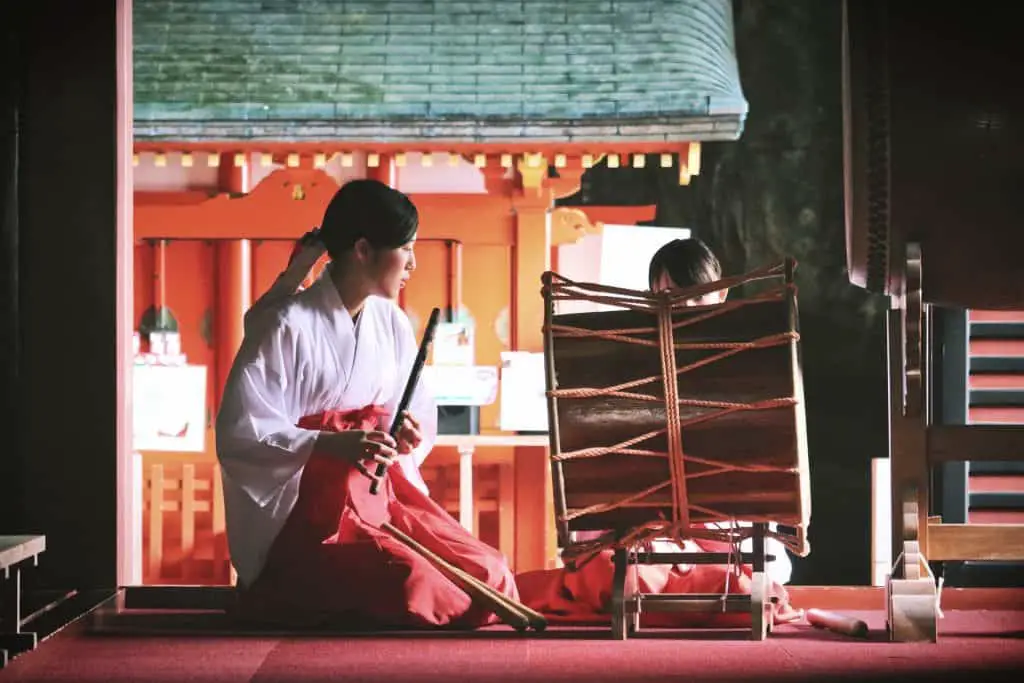
I mean, with things like songs, it’s debatable how much of it actually goes in if you’re only passively listening, but once again if you do understand most of the words being sung without having to think that much, you should happily pick up a few new words here and there.
I’ve written a post about my favorite Japanese musicians, so that should be a good starting point if you’re stuck.
There are also a few extremely basic songs on youtube you can listen to if you’re a complete beginner, and I’ve found them to be really helpful.
For instance, this sing-along “brush your teeth” song. It’s a great way to learn Japanese vocabulary as a beginner, but it’s also more than likely going to be stuck in your head for the next year!
Movies

If you’re someone who likes to fall asleep during movies, this might even be a way for you to learn Japanese while you sleep!
If not, it still doesn’t take much effort to follow along with the subtitles, and depending on what level of Japanese listening to you have and what film you’re watching, you could definitely increase your vocabulary with very little effort.
Remember, you should still watch these movies actively. That means having a pen and paper (or computer) handy and writing down any words or phrases you don’t know so that you can go back later and revise them.
Of course, you can watch them as passively as you want, but I don’t know how helpful that’s going to be for you unless you’re near fluent.
Unsurprisingly I really enjoy studio Ghibli movies (Subbed not dubbed, of course!), and Netflix has a whole load of these ready for you to sink your teeth into!
Books
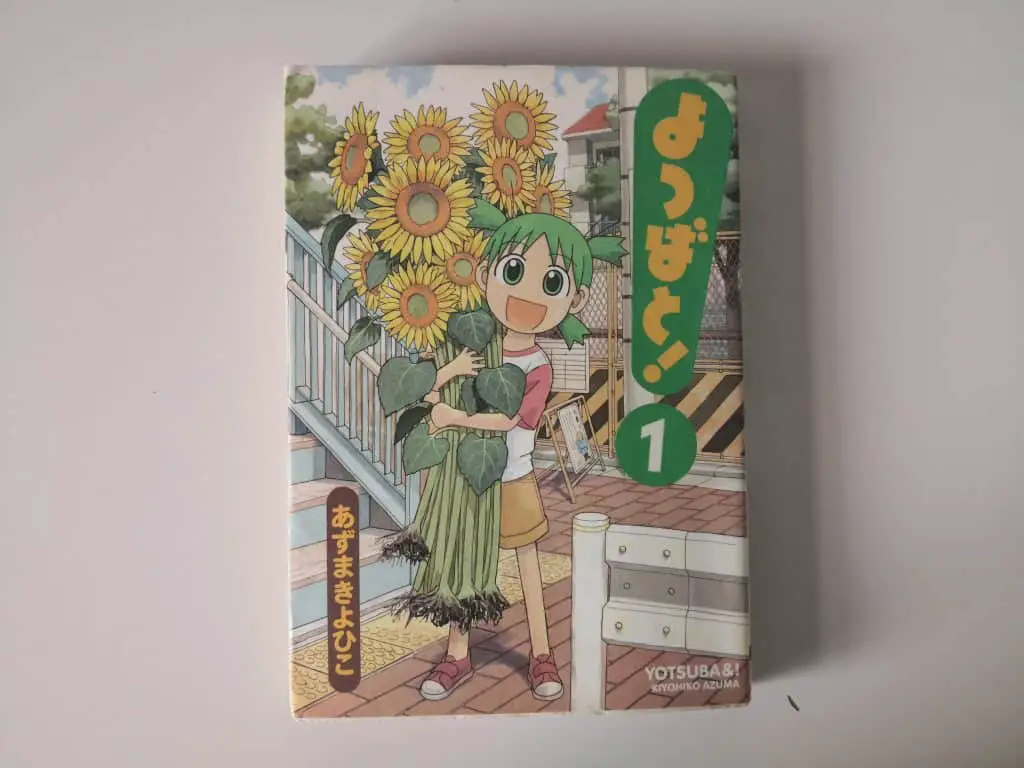
Reading Japanese books probably requires the highest level of Japanese to begin with, but if that’s something you already have, then you can read some really interesting stories without feeling like you have to try that much.
As a relative beginner, I like the Yotsuba&! books. They aren’t too hard to read if you have a basic understanding of Japanese and the stories are really cute and not overwhelming in the slightest.
If you aren’t quite at Yotsuba level yet, maybe it’s something to work towards as a break from those other textbooks!
So, can you learn Japanese while sleeping?
I definitely digressed a little too much on this one, but the result is still the same. If you are trying to milk every hour of the day to learn Japanese, or maybe your schedule is super busy, then 100% you should try to learn Japanese whilst you sleep.
As I’ve stated before, you’ll only be able to re-affirm your knowledge of vocabulary, and even then it might not work, but for something that takes such little effort to do you might as well give it a try to see if it does!
looking for other ways to learn Japanese? Here’s a list of the best online Japanese resources for you to start with!
じゃまたね!^_^




